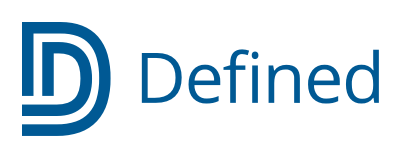I’d been leading the Rhode Island Department of Education (RIDE) for less than a year in the fall of 2019 when I first witnessed high school students crying because they’d been shortchanged education and teachers actually sobbing because they felt responsible. These emotional moments occurred during school planning sessions, where educators, students, and administrators were examining how students experience high school in Rhode Island.
What was wrong? Many of Rhode Island’s seniors were applying to colleges, only to find that they hadn’t taken the necessary coursework recommended for admission. Many felt they had been shuttled through high school without anyone ensuring they were on track to pursue higher education or careers. Without exaggeration, the system was failing many of our students.
The core problem was the state’s graduation standards. To receive their high school diplomas, Rhode Island’s students didn’t have to take the math, lab science, and world language courses required by the University of Rhode Island and Rhode Island College. Even worse, high school graduates told us they felt unprepared for life because they didn’t have real-world skills like financial literacy.
Rhode Island wasn’t the only state with this problem. A few years ago, the Center for American Progress found a shockingly low number of states required students to complete a truly well-rounded education in order to graduate high school. It’s no wonder the U.S. has been stagnating in the international math and reading tests given to teenagers.
As the person leading Rhode Island’s state education system, I was devastated to hear students and teachers describing a system that frankly wasn’t preparing kids for success in college or careers. We needed to figure out whether this was happening at a few high schools or whether it was a more widespread problem. RIDE was already partnering with the XQ Institute, a nonprofit that works with communities around the country to rethink and redesign high school so that it’s more rigorous, equitable, and inspiring. Together with XQ, RIDE conducted an in-depth analysis – known as an Educational Opportunity Audit – of how effectively and consistently our high schools were educating kids from disparate backgrounds throughout the state.
The data from that audit painted a painful picture of a system not just failing to prepare its students, but also perpetuating racial and class inequities. We learned, for example, that only six out of 10 students in Rhode Island were taking the courses they needed to be eligible for college. Boys were less likely to complete the college preparatory course sequence than girls, while Black and Latino students were less likely than white and Asian students, and low-income students and English learners were less likely than their peers. Students with disabilities had the lowest rate of all. Further, only about a third of students were taking the full complement of career and technical education courses needed to be considered career-ready.
As grievous as the situation was, the good news was that it pointed us toward some concrete solutions. We had to clearly define what a Rhode Island diploma meant – for every student, no matter their district or school. And we had to ensure these criteria aligned with the admissions recommendations of state colleges and universities. If we did these two things, we could ensure that every single one of our graduates, regardless of race, income, or ZIP code, would be ready for college and beyond.
But previous efforts to address these problems faltered due to a lack of consensus within Rhode Island’s education community. To break that cycle, we knew we’d need to deeply engage the full spectrum of stakeholders in our state’s public school system. Centering community voice, RIDE began developing a proposal to update the state’s graduation requirements. During a robust, 18-month community engagement process, we reached out to teachers, parents, students, labor unions, business, and nonprofit leaders – everyone who’s invested in and impacted by the quality of our schools. Their insightful feedback led us to:
- Add a financial literacy course as a requirement for graduation because students told us making informed financial decisions was important. Additionally, we put the onus on schools to support students in filling out the Free Application for Federal Student Aid (FAFSA) and state aid forms to ensure all students get help in maximizing financial assistance.
- To address the fact that more than one in three students in Rhode Island takes care of a family member for part or most of the day, we agreed to require every high school in the state to develop flexibility and support for those caregiving students. We’re now designing those policies. For example, the state is exploring awarding students community service hours for their caregiving work and designing flexible class schedules, skills-building groups, and support groups.
- Eliminating all requirements surrounding instructional minutes or seat time. Research shows the amount of minutes a student sits in a seat does not correlate to the amount of learning that occurs in a classroom. By letting schools move away from single-subject classes of about 50 minutes a day, students can take longer classes that combine science and math, or that involve community partnerships — so long as they demonstrate competency and meet state standards. This also gives our teachers more flexibility to adapt their instruction to the way our kids learn best.
After considerable community engagement that began in the summer of 2021, we released our first proposal for public comment this past February. Over the next few months, it became the most commented-on K-12 policy proposal in the history of Rhode Island. In November, after conducting even more engagement than required by the state, we presented the Rhode Island Council on Elementary and Secondary Education with an even more refined plan for new, equitable graduation standards. The council passed it unanimously.
What policymakers often forget is that when a major change is proposed, people get nervous. There were many moments along the way when, if we’d failed to engage our school system’s diverse stakeholders, we would have lost crucial support. But RIDE committed to shepherding our communities through this process, remaining flexible, addressing their concerns, and devising solutions, and we kept that commitment. That’s the main reason this effort succeeded: We did not want to be right, we wanted to get it right with the community by our side.
We also took important public feedback into account by phasing in these changes over the next six years. In the short term, students who arrive in high school as first-year students will be automatically enrolled in the courses they need to be eligible not only to graduate from high school but to apply to our state colleges and universities. And in the long term, these new standards will improve how our entire K-12 system prepares students for college and careers. Students will take a more rigorous math sequence, lab science, and at least two years of world languages, but complete the same number of credits to graduate.
Throughout the country, state colleges and universities say they’re enrolling too many students who need remedial instruction. By listening to students, their families, and teachers, we are changing that trajectory in Rhode Island, making the kind of system-wide impact that often feels impossible. We hope it serves as a model for other states.
Our students deserve a world-class education – and we’re taking strides to ensure it.
Editors Note:
This essay has been produced in partnership between The 74 and the XQ Institute. The XQ Institute is a financial supporter of The 74. Do you want to learn more about how to rethink high school? The XQ Xtra is a newsletter for educators that comes out twice a month. Sign up here.

